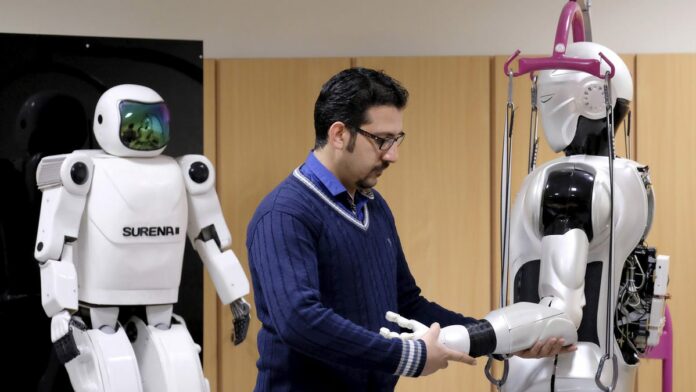Fears of robots taking over people’s jobs have been a recurring theme for centuries, and with recent advancements in AI, the anxiety has resurfaced. But fear not, humans! A new study from the Massachusetts Institute of Technology (MIT) offers a reassuring perspective: most jobs are currently too expensive to automate with AI.
The study, authored by five MIT researchers and titled Beyond AI Exposure, delves deep into the practicalities of replacing human labor with AI in the US, focusing on tasks that lend themselves to computer vision, such as those performed by teachers, property appraisers, and bakers.
Surprisingly, the authors found that only 23% of workers’ wages for such jobs could be cost-effectively replaced by AI. “Even with a 50% annual cost decrease, it will take until 2026 before half of the vision tasks have a machine economic advantage,” states the 45-page study seen by Quartz. “By 2042 there will still exist tasks that are exposed to computer vision, but where human labor has the advantage.”
The researchers predict that even with a 20% drop in cost per year, it would still take decades for computer vision tasks to become economically efficient for companies. Financed by the MIT-IBM Watson AI Lab, the study used online surveys to gather information on about 1,000 visually assisted tasks spanning 800 occupations. Right now, only 3% of these tasks can be economically automated, but the researchers suggest that this figure could increase to 40% by 2030, contingent on lower data costs and improvements in accuracy.
Why AI won’t steal your job soon
While AI excels at recognizing patterns and analyzing images, the technology behind it comes with hefty installation and maintenance costs. In many cases, it’s simply cheaper to rely on human skills and intuition. Plus, AI already has a power consumption problem, and companies are struggling to implement AI systems.
Unlike humans, who have both conscious and subconscious thought processes, AI mostly uses statistical and symbolic reasoning. So it struggles with tasks that require intuition, gut feeling, and implicit knowledge, which often inform human critical thinking and emotional intelligence. Those traits will continue to be irreplaceable in the evolving job market.
Of course, AI is still impacting many jobs. Industries like banking, marketing, retail, legal services, transportation, and healthcare are prime candidates for increased automation, thanks to their repetitive tasks and the potential for cost savings. A 2023 report (pdf) from Goldman Sachs estimates that around 300 million jobs, or 18% of work globally, could be affected by generative AI. The MIT study also acknowledges that advancements in AI, like improved data efficiency and accuracy, could significantly boost its automation potential.
But for now, anyway, the “machines will steal our jobs” narrative seems exaggerated.


